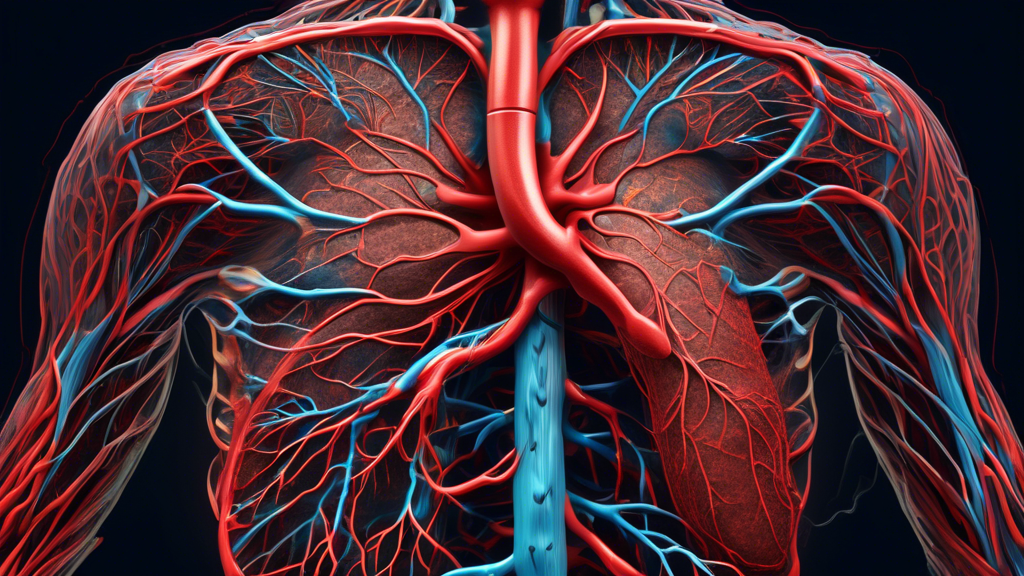
Pycnogenol: Research-Backed Benefits for Blood Circulation
Share
Introduction to Pycnogenol
Pycnogenol is a natural supplement derived from the bark of the French maritime pine tree. Over the years, it has gained significant attention due to its purported health benefits, particularly in improving blood circulation. This article delves into the science-backed benefits of Pycnogenol for blood circulation, explaining its mechanisms, dosage, and what the research says.
Understanding Blood Circulation
Blood circulation is vital for maintaining overall health as it ensures the delivery of oxygen and nutrients to the body’s tissues while removing carbon dioxide and waste products. Poor blood circulation can lead to various health issues, including varicose veins, peripheral artery disease, and venous insufficiency. Maintaining optimal circulation is critical for cardiovascular health and overall well-being.
What is Pycnogenol?
Pycnogenol is a potent antioxidant, rich in procyanidins, bioflavonoids, and phenolic acids. These compounds work together to combat oxidative stress, enhance vascular function, and improve circulation. The supplement has been studied extensively, with a growing body of research supporting its efficacy in various health domains, most notably in blood circulation and cardiovascular health.
Mechanisms of Action
Pycnogenol exerts its benefits on blood circulation through several mechanisms:
- Antioxidant Properties: Pycnogenol reduces oxidative stress, protecting blood vessels from damage caused by free radicals.
- Anti-inflammatory Effects: It decreases inflammation, which can lead to improved vascular health and reduced risk of chronic diseases.
- Enhanced Nitric Oxide Production: Pycnogenol promotes the production of nitric oxide, a molecule that helps relax and dilate blood vessels, improving blood flow.
- Collagen Stabilization: It helps in the stabilization and production of collagen, which is essential for the structural integrity of blood vessels.
Research-Backed Benefits of Pycnogenol
Improvement in Venous Health
Several studies have documented Pycnogenol’s ability to support venous health. For example, a study published in “Clinical and Applied Thrombosis/Hemostasis” observed that patients with chronic venous insufficiency experienced significant improvements in symptoms such as leg swelling and pain after taking Pycnogenol.
Enhanced Microcirculation
Microcirculation refers to the circulation of blood in the smallest blood vessels, including capillaries. A study in the “Journal of Cardiovascular Pharmacology and Therapeutics” found that Pycnogenol enhances microcirculation by improving capillary function. This can be particularly beneficial for individuals with diabetes, as poor microcirculation can lead to complications such as diabetic retinopathy.
Cardiovascular Health
Pycnogenol's role in cardiovascular health is well-documented. The supplement has been shown to lower blood pressure, reduce LDL cholesterol levels, and improve endothelial function. These combined effects contribute to a reduced risk of cardiovascular diseases, offering a natural approach to heart health.
Prevention of Deep Vein Thrombosis (DVT)
Deep vein thrombosis (DVT) is a condition where blood clots form in deep veins, usually in the legs. Research has indicated that Pycnogenol can help prevent DVT, especially in high-risk scenarios such as long-haul flights. A study published in the “Clinical and Applied Thrombosis/Hemostasis” journal found that passengers who took Pycnogenol experienced a lower incidence of DVT compared to those who did not.
Recommended Dosage and Usage
While Pycnogenol is available in various forms, including tablets and capsules, the appropriate dosage can depend on the individual and the condition being treated. Most studies have used doses ranging from 50 to 300 milligrams per day. It is advisable to consult with a healthcare provider to determine the correct dosage for your specific needs.
Potential Side Effects and Precautions
Pycnogenol is generally considered safe for most people when taken in recommended doses. However, some individuals may experience mild side effects such as dizziness, gastrointestinal discomfort, or headaches. Pregnant and breastfeeding women should consult their doctors before starting any new supplement, including Pycnogenol.
Conclusion
Pycnogenol offers a promising natural remedy for improving blood circulation and overall cardiovascular health. Backed by scientific research, it supports venous health, enhances microcirculation, and aids in preventing conditions like DVT. As with any supplement, it is important to discuss its use with a healthcare provider to ensure it aligns with your health needs and conditions. By incorporating Pycnogenol into a balanced health regimen, individuals can take proactive steps towards maintaining optimal blood circulatory health.
